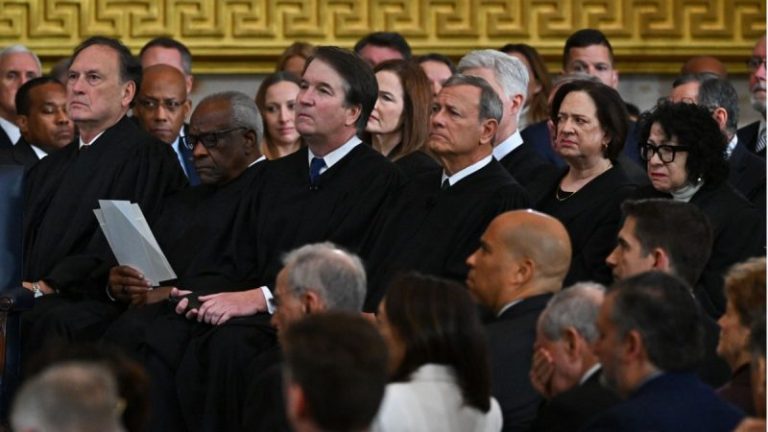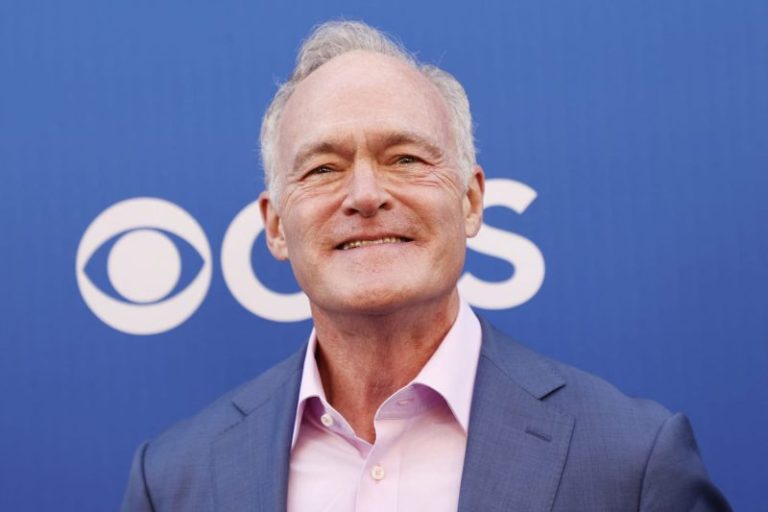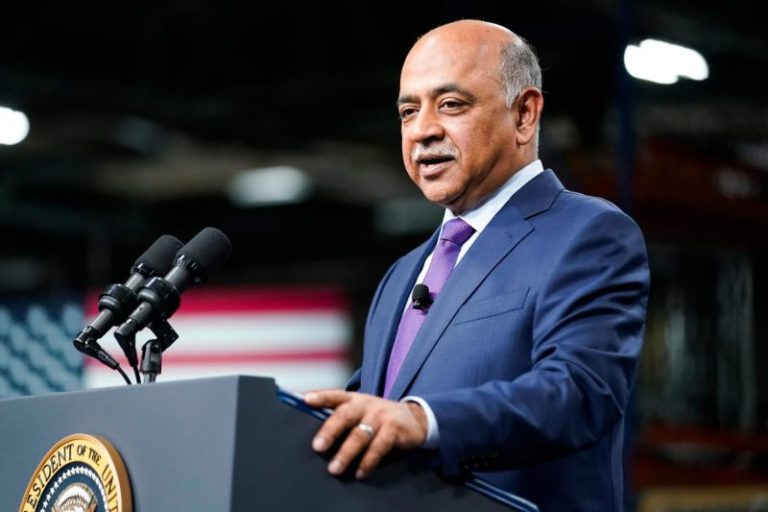President Donald Trump has spent the first 100 days of his second White House term signing a flurry of executive orders aimed at delivering on his policy priorities: slashing government spending, cracking down on illegal immigration and eliminating many diversity and equity initiatives enacted under the Biden administration.
The more than 150 executive orders Trump has signed far outpace those of his predecessors. But they have also triggered a torrent of lawsuits seeking to block or pause his actions, teeing up a high-stakes showdown over how far Trump can push his Article II powers before the courts can or should intervene.
It’s a looming constitutional clash spinning like a top through the federal courts; a blink-and-you’ll-miss-it set of hearings and appeals and emergency orders that deal with weighty issues of due process and First Amendment protections guaranteed by the Constitution.
Trump’s critics argue the fast-paced strategy is meant to confuse and overwhelm his opponents. His supporters counter that it allows him to strike with maximum precision and sidestep a clunky, slow-moving Congress as the president pursues his top priorities.
In his first 100 days, administration lawyers have gone to bat in courtrooms across the country to defend Trump’s early executive orders and halt a wave of lawsuits and emergency restraining orders aimed at blocking them.
Trump, meanwhile, has steadfastly maintained that he would ‘never defy’ the Supreme Court as recently as in an interview last week.
‘I’m a big believer in the Supreme Court and have a lot of respect for the justices,’ Trump told Time Magazine.
Critics say he already has.
‘The second Trump administration has taken the guardrails off of the norms that historically governed the rule of law and is undertaking steps to enhance the perceived power of the executive branch to the detriment of the two other co-equal branches,’ Mark Zaid, an attorney who has gone toe-to-toe with the Trump administration in several court cases this year, told Fox News Digitial.
‘These actions threaten the fundamental notion of our democracy, particularly as the Administration seeks to eliminate due process protections in a quest for power.’
The biggest fights so far have centered around the Trump administration’s use of the Alien Enemies Act, a 1798 wartime law, to deport certain migrants to El Salvador. Another major case to watch will be challenges to Trump’s executive order ending birthright citizenship.
Two separate federal judges, in D.C. and Maryland, have suggested they could move to begin possible contempt proceedings against some Trump officials for refusing to comply with their orders.
In one case, a judge issued a scathing rebuke against Trump officials for failing to return a Maryland resident and alleged gang member who was wrongfully deported to El Salvador this year. Separately, U.S. District Judge James Boasberg said there was probable cause to find Trump administration officials in criminal contempt for defying his order to return deportation flights to El Salvador on March 15.
The Trump administration has fought back, questioning the authority of lower courts to stop his agenda. The Supreme Court agreed to hear oral arguments on a challenge to some of the nationwide injunctions, beginning with a birthright citizenship case in early May.
Meanwhile, White House officials have railed against the ‘activist’ judges who they say have overstepped and are acting with a political agenda to block Trump’s policies. They’ve blasted judges for pausing Trump’s transgender military ban, reinstating USAID programs and blocking Elon Musk’s Department of Government Efficiency (DOGE) from accessing federal offices.
Some congressional allies have threatened impeachment against judges who defy Trump, but so far Congress has not advanced any impeachment articles.
White House press secretary Karoline Leavitt declined this week to rule out the arrest of federal judges, including Supreme Court justices.
Asked at a press briefing about the hypothetical on Monday, Leavitt referred the matter to the Justice Department but said a judge in New Mexico was arrested in ‘a clear-cut case of obstruction.’
‘And so anyone who is breaking the law or obstructing federal law enforcement officials from doing their jobs is putting themselves at risk of being prosecuted, absolutely,’ she said.
Jonathan Turley, a law professor and Fox News contributor, told Fox News Digital that he sees Trump’s early actions as getting ahead of the 2026 primaries and moving with maximum force to implement his agenda.
Trump ‘knows that he has no alternative but to push ahead on all fronts if he is going to make meaningful progress on his promised reforms,’ Turley told Fox News.
‘The midterm elections are looming in 2026. If the Democrats retake the House, he knows that he can expect investigations, impeachments and obstruction. That means that he has to expedite these cases and establish his lines of authority in areas ranging from migration to the markets.’




